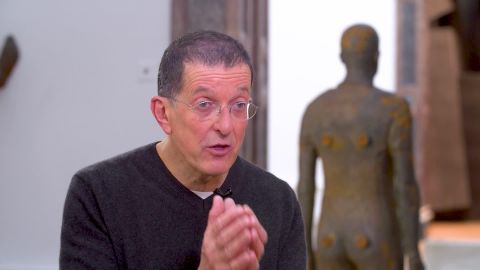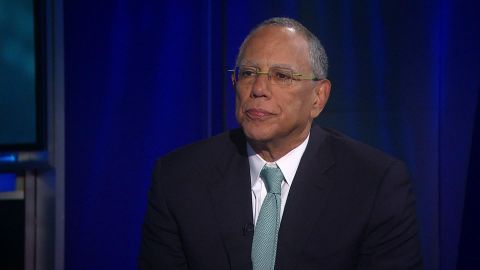Read Transcript EXPAND
CHRISTIANE AMANPOUR: You’ve probably seen a recent “Vanity Fair” article in which two “New York Times” editors, current editors, anonymously spoke about your leadership in the Trump era. The first one said, “We’re in a bit of uncharted territory. There is definitely some friction over how does this paper position itself. I don’t think you could argue that we haven’t been tough on Donald Trump. There’s real debate and some real disappointment about how we position ourselves as an institution.” I mean, we just talked about you —
BAQUET: Sure.
AMANPOUR: — being the opposition, you said no.
BAQUET: Sure, sure.
AMANPOUR: So, how do you respond to this editor?
BAQUET: What I’ve said to editors like that in my news room, my job is not only to cover Donald Trump, my job is to position the “New York Times” for a post Donald Trump world. My job is to make sure that we don’t change all our rules of engagements, so much so that when President Warren or President Haley or fill-in-the blank —
AMANPOUR: Or President Trump.
BAQUET: — or President Trump comes along that “The New York Times” — of course, we all have to change, but that “The New York Times” and its foundational principle remains the same. I have to look past Donald Trump.
AMANPOUR: I mean, you’re a student of the history of this business. Has it actually been this bad? Has there —
BAQUET: Oh, my God. I think — I’ll tell you —
AMANPOUR: I mean, in our recent memory. I know everybody goes back to, you know, the founding fathers but —
BAQUET: Well, I’ll give you two big differences. But, of course, think about what the ’60s were like. There was a war. There were people in news rooms who were draft age. There were many, many more Americans in the military. Everybody, every American knew somebody in the military. The south was on fire. There was evident signs — I mean, I grew up in the south, evident signs of just a traumatized America. That feels like history worth, at least, understanding and remembering. There are two differences this time between now and Watergate, I’d argue. First is the internet, which is mostly great but sometimes a distraction. And secondly, “Fox News,” to be honest. I mean —
AMANPOUR: Why do you say that?
BAQUET: Well, let’s picture if there had been “Fox News” during Watergate. During Watergate, the American press came to understand that Richard Nixon had violated the law and that it was time for a change. The American press did the investigative work that lead it to happen. There was no powerful large voice taking Richard Nixon’s side. There is now. That’s different. Just say it would be an interesting —
AMANPOUR: Some people would say that that’s fairer.
BAQUET: I think if — I mean, I’m not a fan of “Fox News,” to be perfectly frank, because I don’t think “Fox News” covers the world. We all struggle. We all make mistakes. I think “Fox News”, in its powerful opinion, shows that are front and center, is too close to the president. I would just argue that that’s a fact.
About This Episode EXPAND
Executive editor of the New York Times Dean Baquet sits down with Christiane Amanpour to discuss the challenges of covering the Trump administration. Ronan Farrow tells Michel Martin about his new book “Catch and Kill” and his reporting on the #MeToo movement. Artist Antony Gormley takes Christiane on a tour of his latest exhibition at the prestigious Royal Academy in London.
LEARN MORE


